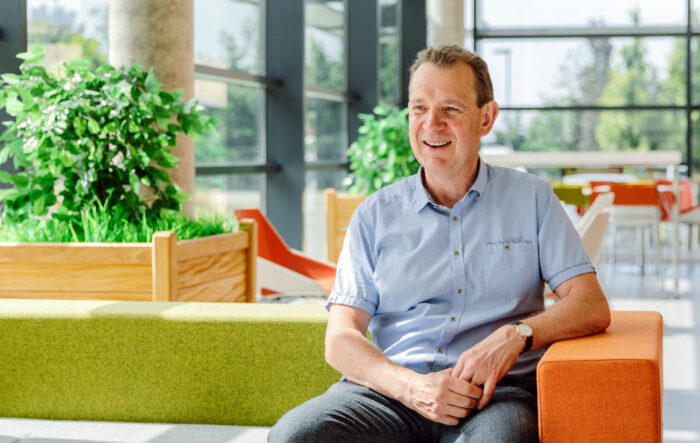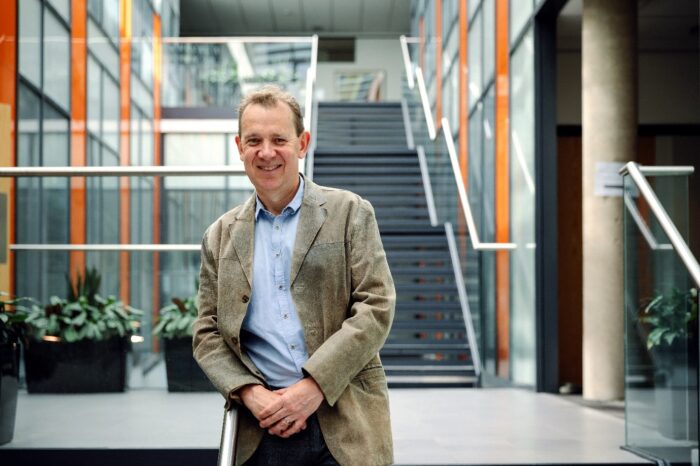Adam Crawford - Co-production Research Toolkit Case Study

Professor of Criminology and Criminal Justice Adam Crawford’s research focuses on the use of diverse methods of co-production with service providers and vulnerable groups involved in the policing of contemporary vulnerabilities.
Co-production is difficult and messy, but when done sensitively is hugely rewarding
As Director of LSSI (until 2021), Adam was keen to support the establishment of the Co-production Network. The purpose of the network is to bring together researchers across the University of Leeds to explore participatory research practices in diverse fields and disciplines, and to share experiences and discuss challenges.
Developing a space for cross-discipline co-production
For Adam, creating university capacity for co-production and participatory research practice was important. ‘We established the Co-production Network in an initial collaboration between LSSI and the Leeds Arts and Humanities Research Institute (LAHRI),’ he explains. ‘Through the network, we wanted to foster conversations across disciplines from a methodological perspective. This was traditionally quite difficult across big institutions like the University of Leeds where people primarily work in their own disciplinary silos.’
Another of Adam’s key motivations for enabling co-production was the barrier he saw for researchers to work in this way. ‘I found it frustrating that funding bodies made statements about the benefits of participatory methods, but it wasn’t easy for researchers to facilitate user engagement and sustain long-term relationships,’ he says. ‘I wanted to advocate for people who were serious about co-production research to come together, share experiences, and lobby for change and institutional support.’
Applying participatory practices to understand policing processes
Adam’s research focuses on urban policing and participatory practice with vulnerable groups and service providers. ‘It covers all of the nuances around policing in both public and private spaces, from security guards to police officers themselves,’ Adam explains. ‘We recognised that much of what happens in the name of policing is done by other organisations. So we established a multi-institutional co-production research collaboration called the N8 Policing Research Partnership. This collaboration is between the N8 research-intensive universities and different police forces in the north of England.’
‘We wanted to focus on doing research that helped us understand policing, but in ways that would involve frontline officers with practitioners who work in partnership with the police, such as women’s refuges and victims’ organisations,’ Adam continues. ‘Therefore, co-production felt the right way to do our research. The people confronting these problems on a daily basis have much untapped knowledge, so we wanted to engage them throughout.’
Recognising the challenges of the methodologies
‘Engaging vulnerable groups in the research process does have its challenges,’ Adam admits. ‘One of the main ethical issues is that many vulnerable people who are themselves the objects of policing have behaviours or lead lifestyles that are considered problematic. Our central challenge is not to stigmatise them further or exacerbate their existing disadvantages. We must also carefully manage the sensitive use of their data.’

Though it is clear to Adam that these research methodologies need to be handled cautiously, he knows doing so has huge benefits. ‘From our work to date, it’s very clear that when you engage in co-production in a professional field, there will be tension around how to manage research integrity and maintain independence without getting drawn into the agenda of these powerful organisations,’ he explains. ‘There’s a fine balance, but it’s one of the exciting ways to look at co-production. People don’t always share the same values, so there is a need to manage and mitigate positions of power and individual experiences.’
Managing expectations to reap rewards
Adam also stresses that researchers need to be clear about both the expectations and the limits of co-production, particularly with vulnerable groups. ‘It does highlight power differences,’ he says. ‘When you’re working with groups with power – like the police - as well as those with limited power, you need to make sure you support both perspectives. We’re still learning, but the debates we’re having and the understanding we’re gaining is the exciting part. It proves co-production is difficult and messy, but when done sensitively is hugely rewarding.’
Adam has stepped down as a Director at LSSI, and celebrates 30 years’ working at the university. He has now become Co-Director of the ESRC Vulnerability and Policing Futures Research Centre, a joint venture between University of Leeds and University of York. ‘Vulnerability and policing will continue to be my focus at the new research centre, applying principles of participatory research and experimenting with co-production methods,’ he says. ‘The research style made people realise they had a lot more in common than they perhaps identified, focussing on what they shared rather than what their differences are. It’s not about thematic versus methodological research. Instead, it’s about looking at other ways to have important conversations about common challenges and opportunities, which a co-production approach allows.’
